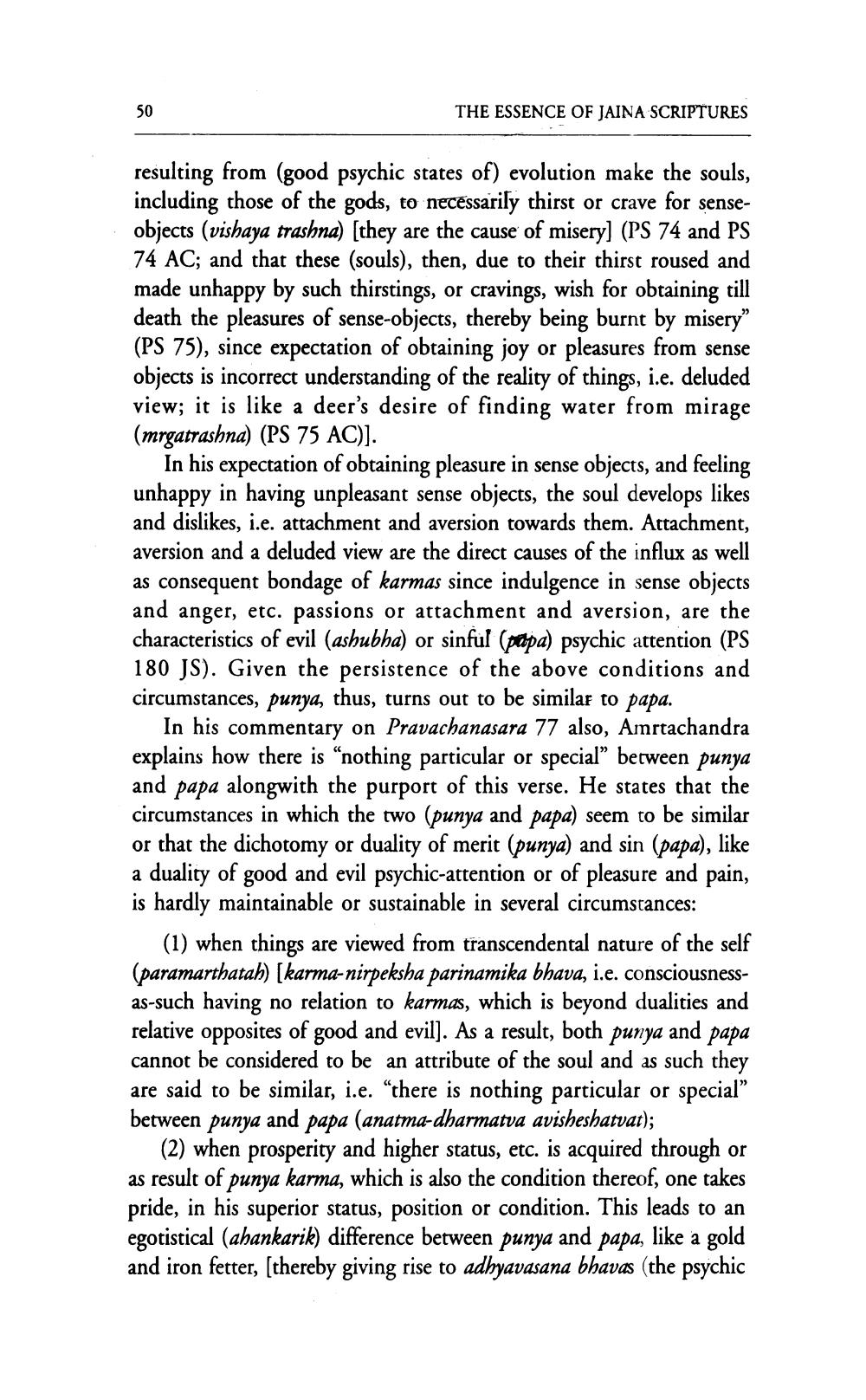________________
THE ESSENCE OF JAINA SCRIPTURES
resulting from (good psychic states of) evolution make the souls, including those of the gods, to necessarily thirst or crave for senseobjects (vishaya trashna) (they are the cause of misery] (PS 74 and PS 74 AC; and that these (souls), then, due to their thirst roused and made unhappy by such thirstings, or cravings, wish for obtaining till death the pleasures of sense-objects, thereby being burnt by misery" (PS 75), since expectation of obtaining joy or pleasures from sense objects is incorrect understanding of the reality of things, i.e. deluded view; it is like a deer's desire of finding water from mirage (mrgatrashna) (PS 75 AC)).
In his expectation of obtaining pleasure in sense objects, and feeling unhappy in having unpleasant sense objects, the soul develops likes and dislikes, i.e. attachment and aversion towards them. Attachment, aversion and a deluded view are the direct causes of the influx as well as consequent bondage of karmas since indulgence in sense objects and anger, etc. passions or attachment and aversion, are the characteristics of evil (ashubha) or sinful (papa) psychic attention (PS 180 JS). Given the persistence of the above conditions and circumstances, punya, thus, turns out to be similar to papa.
In his commentary on Pravachanasara 77 also, Amrtachandra explains how there is nothing particular or special” between punya and papa alongwith the purport of this verse. He states that the circumstances in which the two (punya and papa) seem to be similar or that the dichotomy or duality of merit (punya) and sin (papa), like a duality of good and evil psychic-attention or of pleasure and pain, is hardly maintainable or sustainable in several circumstances:
(1) when things are viewed from transcendental nature of the self (paramarthatah) (karma-nirpeksha parinamika bhava, i.e. consciousnessas-such having no relation to karmas, which is beyond dualities and relative opposites of good and evil]. As a result, both punya and papa cannot be considered to be an attribute of the soul and as such they are said to be similar, i.e. “there is nothing particular or special” between punya and papa (anatma-dharmatva avisheshatvat);
(2) when prosperity and higher status, etc. is acquired through or as result of punya karma, which is also the condition thereof, one takes pride, in his superior status, position or condition. This leads to an egotistical (ahankarik) difference between punya and papa, like a gold and iron fetter, (thereby giving rise to adhyavasana bhavas (the psychic




